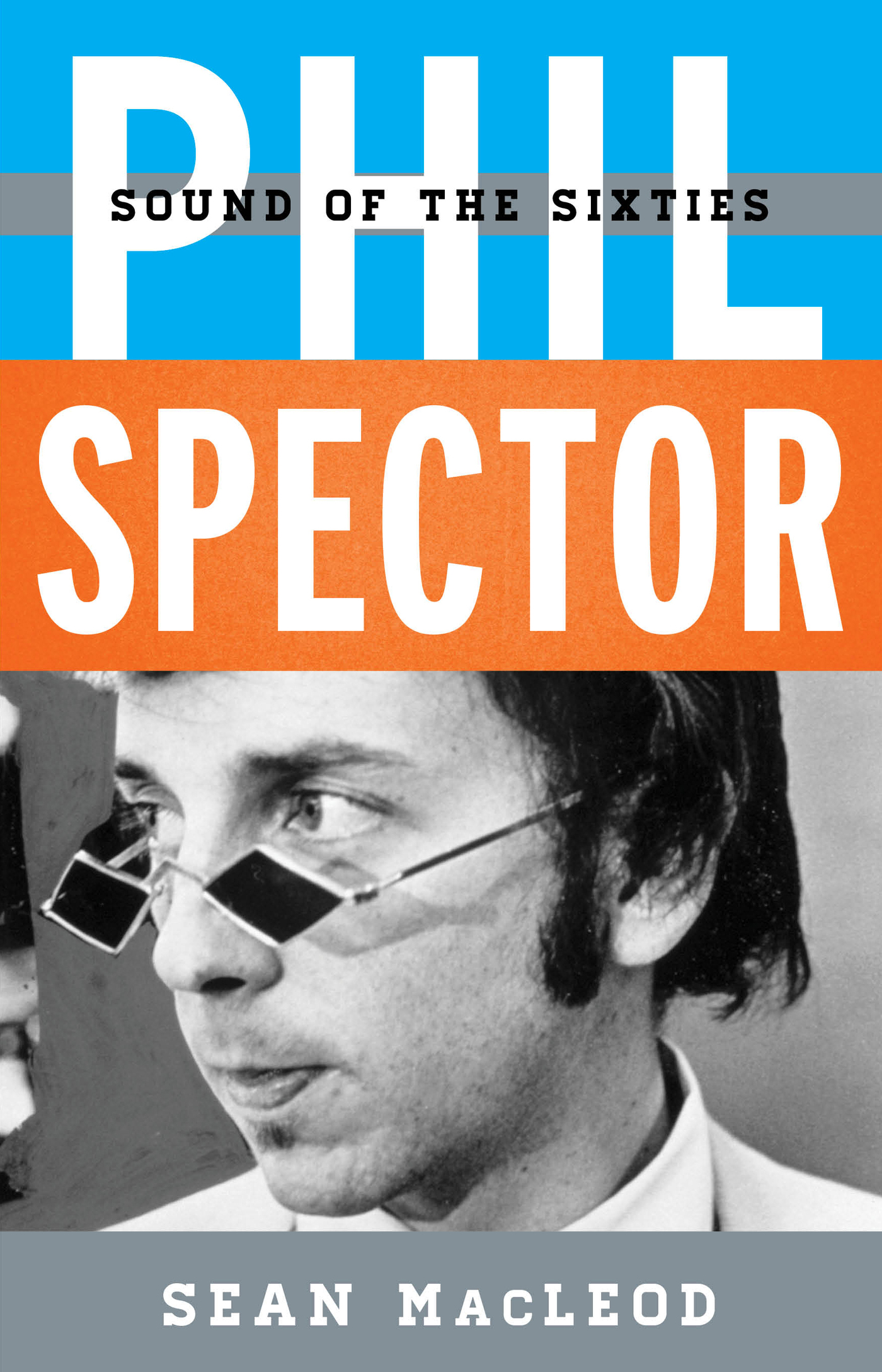Phil Spector
Tempo
A Rowman & Littlefield Music Series on Rock, Pop, and Culture
Series Editor: Scott Calhoun
Tempo: A Rowman & Littlefield Music Series on Rock, Pop, and Culture offers titles that explore rock and popular music through the lens of social and cultural history, revealing the dynamic relationship between musicians, music, and their milieu. Like other major art forms, rock and pop music comment on their cultural, political, and even economic situation, reflecting the technological advances, psychological concerns, religious feelings, and artistic trends of their times. Contributions to the Tempo series are the ideal introduction to major pop and rock artists and genres.
The American Songbook: Music for the Masses, by Ann van der Merwe
Billy Joel: Americas Piano Man, by Joshua S. Duchan
Bob Dylan: American Troubadour, by Donald Brown
Bon Jovi: Americas Ultimate Band, by Margaret Olson
British Invasion: The Crosscurrents of Musical Influence, by Simon Philo
Bruce Springsteen: American Poet and Prophet, by Donald L. Deardorff II
The Clash: The Only Band That Mattered, by Sean Egan
The Kinks: A Thoroughly English Phenomenon, by Carey Fleiner
Kris Kristofferson: Country Highwayman, by Mary G. Hurd
Patti Smith: Americas Punk Rock Rhapsodist, by Eric Wendell
Paul Simon: An American Tune, by Cornel Bonca
Phil Spector: Sound of the Sixties, by Sean MacLeod
Ska: The Rhythm of Liberation, by Heather Augustyn
Sting and The Police: Walking in Their Footsteps, by Aaron J. West
U2: Rock n Roll to Change the World, by Timothy D. Neufeld
Warren Zevon: Desperado of Los Angeles, by George Plasketes
Sound of the Sixties
Sean MacLeod
ROWMAN & LITTLEFIELD
Lanham Boulder New York London
Published by Rowman & Littlefield
A wholly owned subsidiary of The Rowman & Littlefield Publishing Group, Inc.
4501 Forbes Boulevard, Suite 200, Lanham, Maryland 20706
www.rowman.com
Unit A, Whitacre Mews, 26-34 Stannary Street, London SE11 4AB
Copyright 2018 by Sean MacLeod
All rights reserved. No part of this book may be reproduced in any form or by any electronic or mechanical means, including information storage and retrieval systems, without written permission from the publisher, except by a reviewer who may quote passages in a review.
British Library Cataloguing in Publication Information Available
Library of Congress Cataloging-in-Publication Data
Names: MacLeod, Sean, 1971 author.
Title: Phil Spector : sound of the Sixties / Sean MacLeod.
Description: Lanham : Rowman & Littlefield, 2018. | Series: Tempo, a Rowman & Littlefield music series on rock, pop, and culture | Includes bibliographical references and index.
Identifiers: LCCN 2017015245 (print) | LCCN 2017018711 (ebook) | ISBN 9781442267060 (electronic) | ISBN 9781442267053 (cloth : alk. paper)
Subjects: LCSH: Spector, Phil, 1939 | Sound recording executives and producersUnited StatesBiography. | Popular musicUnited States19611970History and criticism.
Classification: LCC ML429.S64 (ebook) | LCC ML429.S64 M3 2017 (print) | DDC 781.66092dc23 LC record available at https://lccn.loc.gov/2017015245
 TM The paper used in this publication meets the minimum requirements of American National Standard for Information Sciences Permanence of Paper for Printed Library Materials, ANSI/NISO Z39.48-1992.
TM The paper used in this publication meets the minimum requirements of American National Standard for Information Sciences Permanence of Paper for Printed Library Materials, ANSI/NISO Z39.48-1992.
Printed in the United States of America
Series Editors Foreword
Of the many contradictions threaded through the most culturally transformative decade of the twentieth century, over there in the popular music sector was Phil Spector. Chief among the 1960s story of looking for release from control was one who gripped the means of production so tightly that he seemed to rather effortlessly pop out hit songs and hip personalities one after another, such that sixties youth cultures had plenty of encouragement as they pushed for liberation and a future in which popular culture would (ironically) define what a free society looked, felt, and sounded like. This Tempo series of books examining rock, pop, and culture keeps an eye out for sites of tension and couldnt have found a much better one than in Phil Spector. Precisely because Tempo books are about marking the cultural times and analyzing the forces that change these times, they look into the contradictions in popular music and the people who lived the tensions artfully and disruptively. Phil Spectors knack and nuance for developing musical performers, recording their talents in a big way, and then seeding the bed for the empowerment of the teenager, one single record at a time, was his art and his cultural disruption; Spectors narcissism, need for control, and paranoia overshadowed his art and became more destructive than disruptive, not for him alone but for some who worked with him too.
Sean MacLeod helps us mark Spectors fervor and fury behind much of the sound of the sixties by bringing his appreciation and intelligence into a dialogue with what others have said about Spector, including those who worked directly with him. Presenting the arc of Spectors career in critique and relief against the fraught and complicated plotline of the sixties, and many of its major musical characters, will give readers a greater sense of the Spector-sixties entanglement.
Scott Calhoun
Preface
Ever since I was a boy the pop music and pop culture of the sixties has been a big part of my life. My introduction to one of the centurys most colorful decades, however, was shrouded in sorrow, since it directly sprang from the killing of John Lennon in December 1980. The TV and radio were buzzing with tributes and commemorations of the former leader of pop musics most celebrated group, the Beatles, whose charm, humor, music, and style was still as alluring at the beginning of the eighties, at least to an eight-year-old such as me, as it must have been twenty or so years earlier at the height of Beatlemania. It wasnt long before I was eagerly exploring the treasure trove that was sixties pop culture, bringing me in touch with the great music of the Beatles, the Rolling Stones, the Beach Boys, and the Byrds.
Although I was aware of Phil Spector, it was only peripheral, and it wasnt until many years later when I came across The Best of the Ronettes CD that I first began to realize just how significant he was to the sixties. Every song was a virtual sonic masterpiece, and although I was familiar with his big hits, such as Be My Baby and Then He Kissed Me, I couldnt quite believe how the magic of songs such as Do I Love You, Is This What I Get for Loving You, The Best Part of Breaking Up, and Walking in the Rain, had passed me by for so many years. No wonder he had been so highly thought of by people such as John Lennon and the Beach Boys Brian Wilson. This music, as was much of the girl group music of the early sixties that Spector had done so much to create, with groups such as the Ronettes, the Crystals, and Darlene Love, was very unique and special, while the sonic textures were way beyond anything else the other more successful groups of the time were producing. I became nearly infatuated with the girl group genre, so much so that I wrote a book on it.
After writing





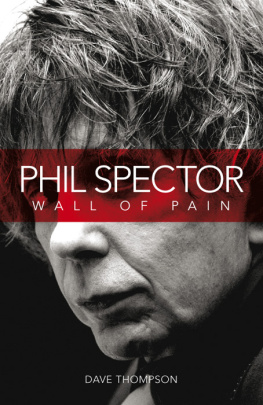

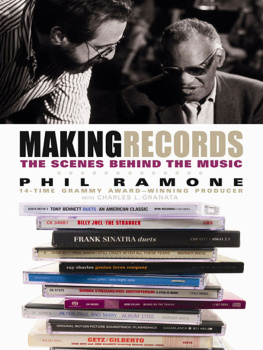


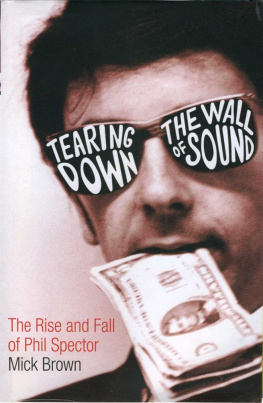
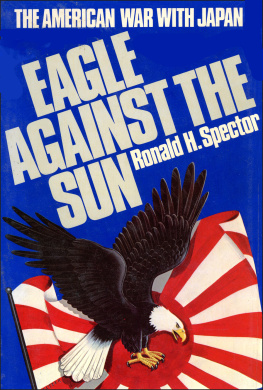
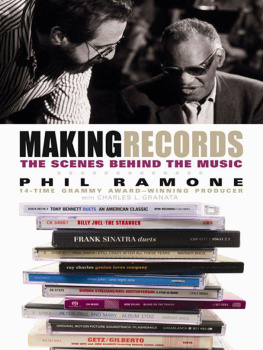
 TM The paper used in this publication meets the minimum requirements of American National Standard for Information Sciences Permanence of Paper for Printed Library Materials, ANSI/NISO Z39.48-1992.
TM The paper used in this publication meets the minimum requirements of American National Standard for Information Sciences Permanence of Paper for Printed Library Materials, ANSI/NISO Z39.48-1992.